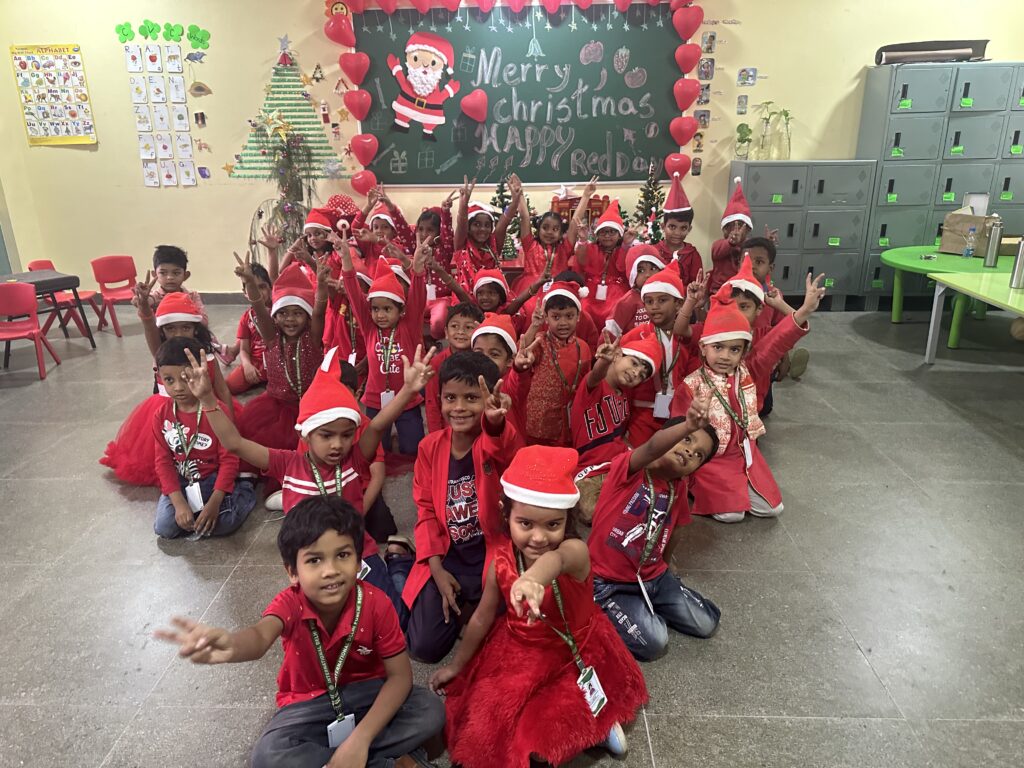What Is the Heritage Club at Delhi Public School Kakinada?
The Heritage Club is a student-led cultural initiative that aims to foster appreciation for India’s rich and diverse heritage. It encourages students to explore the traditions, festivals, architecture, art, languages, and historical milestones that define our national identity. The club is a platform for experiential learning, helping students develop cultural awareness, respect for traditions, and a sense of pride in India’s legacy.
Why Was the Heritage Club Formed?
In today’s fast-paced, technology-driven world, there’s a growing need to connect the younger generation with their cultural roots. The Heritage Club was formed to:
- Preserve and promote India’s cultural and historical wealth.
- Help students understand the importance of traditions in shaping our society.
- Instill national pride and civic responsibility.
- Bridge the gap between textbook knowledge and real-world understanding of history and culture.
- Create responsible citizens who value diversity, inclusion, and heritage.
How Does the Heritage Club Work?
The Heritage Club functions with active participation from students and guidance from faculty mentors. It is structured around the academic calendar and incorporates various cultural activities throughout the year. Here’s how the club operates:
- Planning and Scheduling: At the beginning of the year, the club outlines a calendar of events aligned with important cultural dates, festivals, and heritage weeks.
- Student-Led Initiatives: Students take charge of organizing events, conducting research, and executing activities. This develops leadership and organizational skills.
- Interdisciplinary Approach: Activities are designed to blend subjects like history, art, literature, and performing arts, making the learning experience engaging and comprehensive.
- Field Experiences: Heritage walks, museum visits, and historical site tours are often part of the program, offering students real-world exposure to the subjects they explore.
Key Features of the Heritage Club
- Cultural Showcases: Students organize exhibitions and performances showcasing traditional dances, folk music, art forms, and crafts from various Indian states.
- Festival Celebrations: The club ensures that major Indian festivals like Diwali, Pongal, Holi, Eid, Christmas, and others are celebrated with cultural understanding and inclusivity.
- Traditional Arts and Crafts Workshops: From Warli painting and Madhubani art to pottery and rangoli making, students get hands-on training in India’s artistic traditions.
- Heritage Quiz Competitions: Intra-school and inter-school quizzes test students’ knowledge of Indian history, architecture, monuments, languages, and cultural practices.
- Storytelling Sessions: Sessions featuring folk tales, mythological stories, and historical narratives help students appreciate the oral storytelling tradition that India is known for.
- Local History Projects: The club encourages students to research and present projects on the history and culture of Kakinada and the East Godavari region, fostering a sense of belonging and local pride.
- Traditional Cuisine Day: Students and faculty bring in regional dishes and explain their cultural and historical significance, creating a sensory and educational experience.
- Heritage Walks and Site Visits: Visits to local temples, forts, museums, and historical landmarks are organized to give students a first-hand look at India’s tangible cultural heritage.
Process Followed by the Heritage Club
- Initial Orientation: At the beginning of the academic year, interested students attend an orientation session to understand the purpose and scope of the club.
- Membership and Team Formation: Students are grouped into teams based on interests such as research, event planning, performance, or documentation.
- Monthly Meetings: Regular meetings are held to plan upcoming events, review ongoing projects, and brainstorm ideas.
- Collaboration and Execution: Events are carried out collaboratively, with each member taking specific responsibilities. Guidance is provided by teachers to ensure educational value.
- Documentation and Reflection: Each activity is documented through photos, videos, and reports. Students also write reflections, helping them internalize what they’ve learned.
- Annual Heritage Fest: A culmination of the year’s efforts is celebrated through an annual cultural event where students showcase performances, exhibits, and presentations.
Benefits of the Heritage Club
- Cultural Literacy: Students gain deep insights into India’s cultural richness and understand the historical relevance of traditions.
- Respect for Diversity: Celebrating various cultures fosters inclusivity, empathy, and appreciation for diversity.
- Boost in Confidence and Creativity: Participating in cultural performances and exhibitions builds self-expression, public speaking, and artistic skills.
- Community Engagement: Some activities involve parents and local artisans, helping students connect with the wider community.
- Value-Based Education: Lessons of discipline, respect, teamwork, and responsibility are naturally embedded in cultural exploration.
- Local and National Identity: By exploring their roots, students develop pride in their heritage and a deeper understanding of India’s role in global history.
Conclusion
The Heritage Club at Delhi Public School Kakinada plays a crucial role in enriching students’ educational journey by connecting them with their cultural and historical identity. Through vibrant celebrations, immersive experiences, and interactive learning, the club nurtures a sense of belonging, curiosity, and national pride. In doing so, it prepares students not only to excel academically but also to grow into culturally grounded, socially responsible citizens. With its unique blend of tradition and creativity, the Heritage Club truly brings the spirit of India alive within the campus walls.
Frequently Asked Questions
The Heritage Club aims to instill appreciation for India’s diverse cultural heritage among students. It organizes activities that highlight traditional arts, crafts, festivals, and historical knowledge.
Activities include storytelling sessions, traditional dance performances, art and craft workshops, and celebrations of regional festivals. These events provide hands-on experiences that deepen students’ understanding of cultural practices.
Engaging in Heritage Club activities enhances students’ cultural literacy, fosters respect for diversity, and encourages creativity. It also helps develop communication and organizational skills through event planning and presentations.
While specific events at DPS Kakinada are not detailed in the available information, Heritage Clubs in schools often organize exhibitions, cultural fairs, and heritage walks to immerse students in cultural learning.
Students interested in joining the Heritage Club can inquire with their class teachers or the school’s extracurricular coordinator for enrollment details and meeting schedules.
Schools often partner with cultural organizations to enhance heritage education. While specific collaborations at DPS Kakinada are not mentioned, such partnerships can provide additional resources and expertise.








